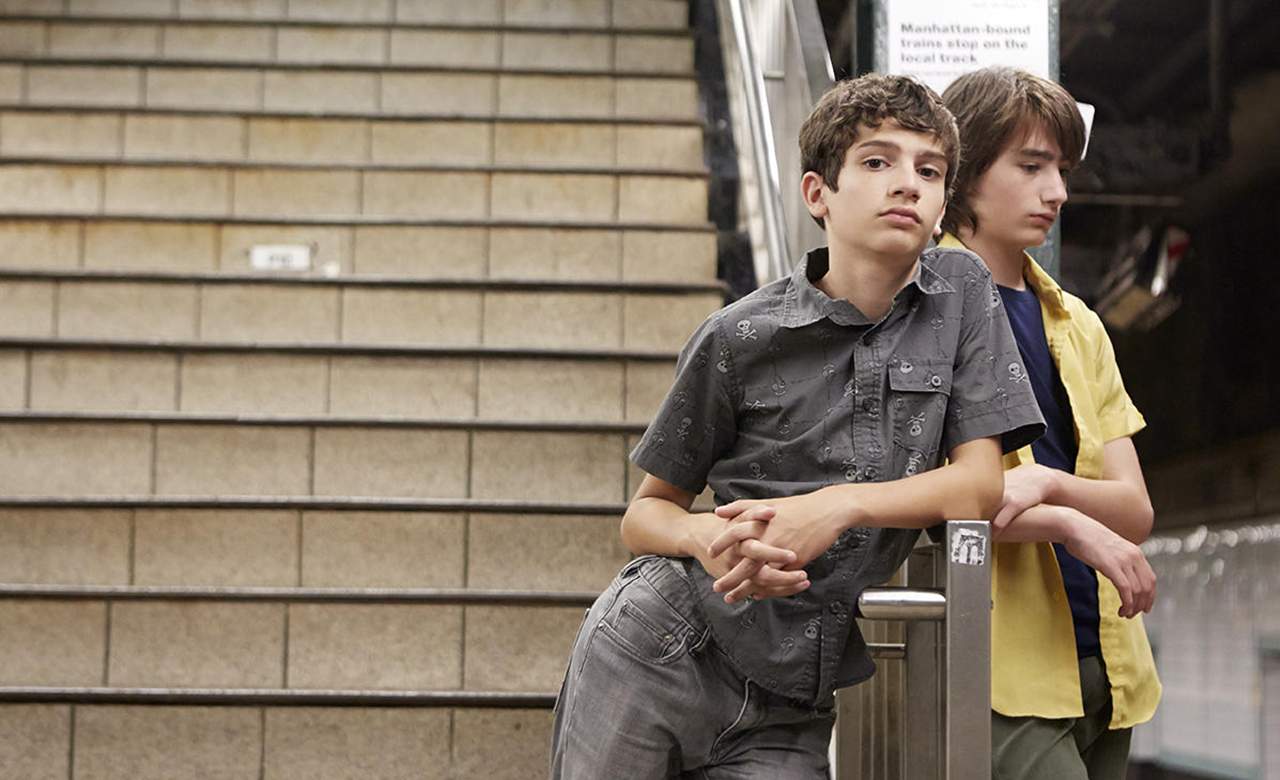Little Men
A sensitive coming-of-age tale set against the backdrop of New York City.
Overview
In Little Men, growing up is filled with illuminating revelations — some obvious, and some that can only be gleaned over time. Case in point: when 13-year-old New Yorkers Jake (Theo Taplitz) and Tony (Michael Barbieri) become firm friends thanks to a chance meeting and a shared love of fantasy novels, everything instantly seems brighter. But as circumstances conspire to test their bond, they also discover that even the strongest glow casts a shadow.
Theirs is a case of opposites attracting. Jake is quiet, reserved and fond of art, while Tony is outgoing, outspoken and dreams of becoming an actor. To them, this doesn't matter — but life has a way of telling them otherwise. They're able to see past class clashes and playground taunts until conflict grows between Jake's father Brian (Greg Kinnear), a struggling actor, and Tony's mother Leonor (Paulina García), who runs a dress shop in the building that Jake's family has just inherited. Raising the rent in line with the area's increasing gentrification would make a drastic difference to both. For Brian, it would mean a steady source of income and a chance to lessen the financial burden on his wife Kathy (Jennifer Ehle). For Leonor, it would mean having to close her store and move on.
While the importance of many of Little Men's exchanges might be readily apparent, this isn't a film that trades in big moments, takes sides or offers easy solutions. Instead, it thoughtfully and patiently observes as Jake and Tony respond and adapt to the complex reality around them. In that way, it calls to mind writer-director Ira Sachs' previous film, the bittersweet Love Is Strange.
Indeed, Little Men could've easily been called Life Is Strange — and, like its predecessor, much hinges upon the work of its cast. It's the understated performances of Taplitz and Barbieri, specifically, that ensures the film stays on track, with the two bringing their characters to life without an ounce of cliche. When Jake and Tony decide to give their respective parents the silent treatment until they resolve their feud, their posture and expression says plenty.
As the younger actors excel at making their gradual, subtle coming-of-age awakening feel authentic and relatable, Kinnear, García and Ehle help paint the world around them in the necessary shades of grey. Of course, the film's naturalistic palette doesn't quite use those tones — in fact, it favours crisp imagery and a whimsical, upbeat score. But crucial to both is balance, rather than exaggeration. Life, after all, is comprised of more than just one simple extreme or the other.





